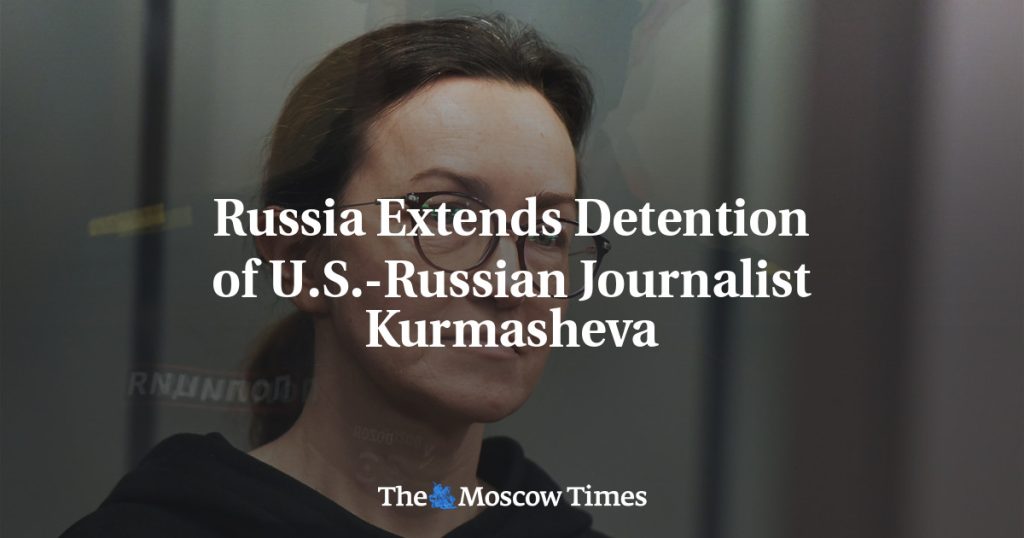Alsu Kurmasheva, a U.S.-Russian journalist working for Radio Free Europe/Radio Liberty, had her pre-trial detention in Russia extended until June 5. She was arrested last year for failing to register as a “foreign agent” and was subsequently charged with spreading “false information” under wartime censorship laws introduced after Russia’s invasion of Ukraine in 2022. RFE/RL has condemned her imprisonment as “outrageous” and believes she is being held because of her American passport. The organization is calling for her immediate release, stating that the charges against her are baseless and that she and her family are suffering unjustly.
Kurmasheva, who lives in Prague with her husband and two children, had both her U.S. and Russian passports confiscated in June after traveling to Russia for a family emergency. While waiting for the return of her passports, she was arrested in October for not registering as a “foreign agent,” which carries a potential prison sentence of up to five years. Additionally, the charge of spreading “false information” has a maximum sentence of 15 years. This case is not an isolated incident, as another U.S. journalist, Evan Gershkovich from the Wall Street Journal, has been detained in Moscow for over a year on espionage charges, facing a possible 20-year prison sentence. The U.S. State Department has accused the Russian government of harassing American citizens, including journalists like Kurmasheva.
The head of RFE/RL, Stephen Capus, has condemned Kurmasheva’s detention as a political ploy rather than a legal process. He believes that Russia is unjustly targeting her because of her American citizenship. Capus has called for an end to what he describes as a sham legal process and demanded Kurmasheva’s immediate and unconditional release. The situation highlights the challenges faced by journalists operating in Russia, where freedom of the press is increasingly restricted, and foreign journalists are particularly vulnerable to government intimidation and repression.
The arrest and continued detention of Alsu Kurmasheva highlight the dangers faced by journalists in Russia, particularly those with ties to foreign countries. Kurmasheva’s case is seen as part of a pattern of the Russian government’s crackdown on independent media and dissenting voices, with journalists being subjected to intimidation, harassment, and legal persecution. The arbitrary use of laws such as the one requiring journalists to register as “foreign agents” is a tool to silence critical reporting and suppress freedom of expression.
The U.S. government has been outspoken in its condemnation of Russia’s treatment of journalists like Kurmasheva, describing it as harassment of American citizens. The State Department has called for the immediate release of Kurmasheva and other detained journalists and has raised the issue of press freedom in Russia at the international level. The detention of journalists not only violates their rights but also restricts access to independent and diverse sources of information for the public, undermining democracy and transparency.
As the international community continues to monitor the case of Alsu Kurmasheva and other detained journalists in Russia, there is growing concern about the deteriorating press freedom situation in the country. Journalists face increasing threats to their safety and freedom, with repressive laws and government actions aimed at silencing independent reporting and dissent. The U.S. and other countries are under pressure to take action to hold Russia accountable for its violations of press freedom and to support journalists in their important work of informing the public and holding power to account.















